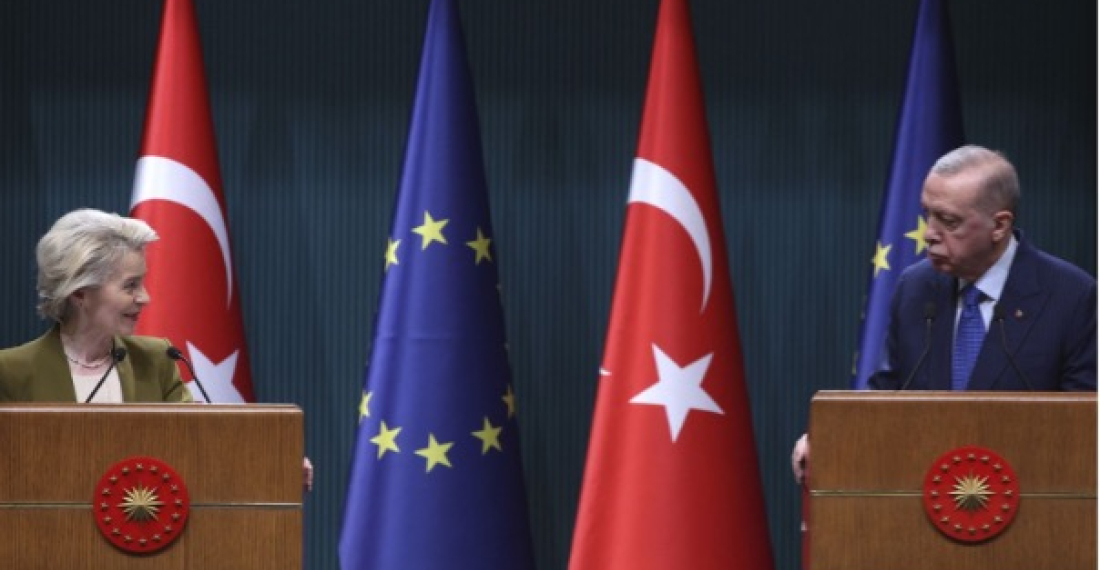Turkey's EU accession process remains frozen due to democratic backsliding, despite the Mediterranean country's strategic importance and cooperation on migration, the European Parliament has stated in a report approved by MEPS in Strasbourg. Turkey's EU accession process, which has been at a standstill since 2018, cannot be relaunched in the current circumstances, despite Ankara's geopolitical and strategic importance, the report says. MEPs in Strasbourg approved the report on Wednesday 7 April, with 367 votes in favour, 74 against and 188 abstentions.
The arrest of Istanbul Mayor Ekrem İmamoğlu, the crackdown on anti-government demonstrations, and human rights violations were all pointed out as signs of democratic backsliding. "The accession process is frozen. There is no progress," Nacho Sánchez Amor, Spanish MEP (S&D/Spain) and rapporteur for the report on Turkey, told Euronews.
"The detention and harassment of ... İmamoğlu are probably the peak of this repressive trend", Sánchez Amor said.
However, the report noted that Ankara remains a strategic partner of the bloc and a key NATO ally, particularly for its growing influence in Ukraine, the Black Sea and the Middle East.
During a debate in the European Parliament, the European Commissioner for Enlargement Marta Kos stressed the need to deepen cooperation with Turkey in areas of mutual strategic interest such as climate, energy security and trade. "The 2016 EU-Turkey declaration on migration continues to deliver results. Irregular arrivals from Turkey to the EU have decreased by 33% this year compared to the same period last year," Kos said.
MEPs also criticised Turkish President Recep Tayyip Erdoğan's recent visit to the occupied areas of Cyprus, recognised only by Ankara. The island has been divided since the Turkish invasion in 1974, while the Republic of Cyprus is a full-fledged member of the EU.
While Sánchez Amor believes the door to Turkey joining the bloc has not been closed for good, he pointed out that "there are no shortcuts to EU membership". "We need to make a distinction between the country and its current leaders. It's true that under the AKP regime, it's impossible to move forward because there is no political will to advance democratic values," he said.
"But there is a dynamic civil society that ... wants to keep alive the hope that perhaps in the future, with other leaders, another country, in a different environment, this could be an opportunity for Turkey to re-engage with the European Union on the basis of membership," Sánchez Amor added.
According to a European Commission report, Turkey's alignment with the EU's Common Foreign and Security Policy had fallen to 5% in 2024.






